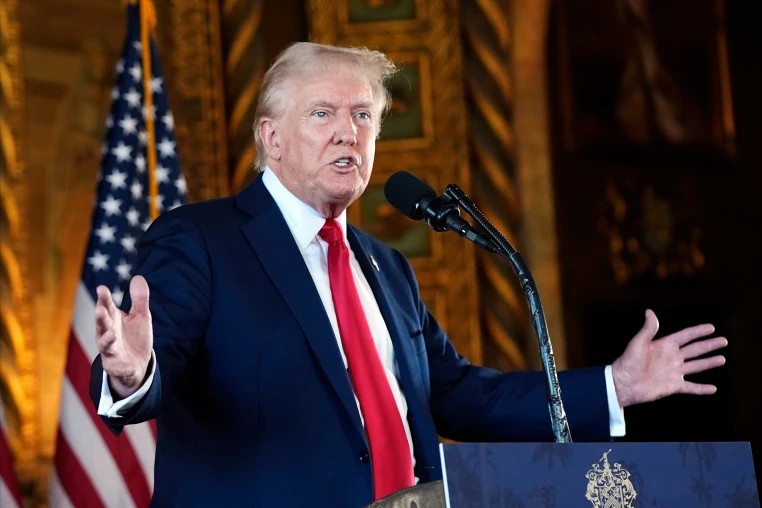
The United States, a nation constantly in motion, is a product of the ebb and flow of its populace and the forces shaping it both internally and globally. Today, America finds itself standing at a pivotal juncture. It confronts a host of unprecedented domestic trials and an international landscape that is swiftly transforming. While the narrative of rejuvenation and metamorphosis resonates loudly, the truth is more intricate—a nation at grips with political disunity, economic ambiguity, cultural reorientations, and a redefined global role. What does this new chapter truly symbolize, and how will it influence America’s tomorrow?
Confronting History: The Narrative Rift
America grapples with its historical contradictions—the steadfast allegiance to democracy at odds with a deeply ingrained legacy of inequality. Recent years have witnessed a reckoning, with national dialogues revolving around racial justice, economic disparity, and contested historical portrayals taking center stage. Yet, instead of fostering unity, these conversations have oftentimes deepened existing divisions.
Initiatives aimed at remedying racial and economic inequalities have encountered both backing and vehement opposition. Efforts to advance diversity, equity, and inclusion (DEI) measures have been rescinded at the national level, with assertions that they breed discord rather than equality. This ideological battleground has extended into education, where states are curbing syllabi addressing systemic racism, gender identity, and other contentious topics.
The battle concerning history and identity is not confined to academia; it is shaping the nation’s policies, electoral outcomes, and societal fabric. Rather than a decisive reckoning propelling advancement, America is embroiled in a protracted tussle over the interpretation of its past and its implications for the future.
Political Revitalization or Democratic Erosion?
The bedrock of American democracy finds itself under siege. Political partisanship has deepened, fostering profound mistrust between opposing factions. Erosion of democratic norms has materialized in challenges to electoral integrity, mass dismissals of government personnel deemed disloyal, and endeavors to centralize executive authority.
Legislation restricting voting access, gerrymandering, and endeavors to contest election results have cast shadows on the resilience of democratic institutions. The judiciary, once perceived as an unbiased check on power, has turned increasingly politicized, with significant judgments reflecting ideological schisms rather than collective accord.
While grassroots movements advocate for change—such as ranked-choice voting, term limits, and transparency in campaign financing—such efforts face uphill battles. The dawn of American governance seems less like a fresh epoch of revival and more akin to a competition for dominance in shaping the nation’s democratic future.
Economic Uncertainty and Inequity
The American economic terrain is a tapestry of contradictions. Despite persistent low unemployment rates and continual technological advancements driving innovation, inflation, stagnant wages, and escalating living expenses fuel economic anxiety.
Protectionist measures, including tariffs on major trade partners, have disrupted global supply chains and augmented costs for consumers. Meanwhile, the chasm between the wealthy elite and the middle- to working-class Americans continues to widen, with corporate profits soaring as many struggle to afford essential needs like housing and healthcare.
Advocacy for economic populism—whether through tax breaks for the affluent or heightened safeguards for domestic industries—has precipitated volatile markets and unease among investors. Calls for expansions in social safety nets, encompassing universal healthcare and relief from student debt, encounter robust resistance on the political front, leaving numerous Americans feeling overlooked in the nation’s economic trajectory.
Cultural Clashes and Societal Fractures
Fundamental aspects of America’s cultural identity are undergoing seismic shifts. Established norms related to race, gender, and national identity are being challenged, prompting a battleground in both politics and everyday interactions.
The retracting of protections for LGBTQ+ individuals, the censorship of books in public schools, and limitations on reproductive rights have incited fierce debates concerning personal liberties and governmental overstep. The resurgence of nationalism, often portrayed as a defense of traditional values, is at odds with progressive movements advocating for broader inclusion and representation.
Social media has amplified these fractures, fostering echo chambers where differing factions seldom engage in productive discourse. Rather than a cultural renaissance founded on harmony, America finds itself enmeshed in a state of persistent social discord, in which each legislative session, corporate policy shift, or Supreme Court ruling further fuels the divide.
Science, Technology, and the Pursuit of Truth
Despite retaining global leadership in technological innovation, America’s preeminence in this domain is being increasingly disputed. Advancements in artificial intelligence, space exploration, and biotechnology present novel prospects but also ethical quandaries.
Simultaneously, America confronts a burgeoning skepticism toward science and expertise. The pandemic laid bare profound schisms in public health trust, with misinformation and political meddling complicating responses. Climate change initiatives, once a realm for bipartisan collaboration, have transmuted into another theater for the nation’s ideological confrontations, with states adopting markedly different stances on environmental regulations.
The challenge ahead transcends mere technological advancement to ensuring that progress is inclusive of all Americans while upholding ethical and democratic oversight. Lacking a steadfast commitment to scientific education and judicious governance, the U.S. risks lagging in the global technological vanguard.
America’s Role on the Global Stage: A Diminished Hegemony
America’s global sway is evolving. Once the indisputable torchbearer of the free world, the U.S. now grapples with burgeoning competition from China, resurgent assertiveness from Russia, and waning trust among long-standing allies.
Under the existing administration, foreign policy has emphasized an “America First” ethos, prioritizing individual action over collaborative efforts. This shift has strained alliances within NATO, weakened established partnerships, and introduced uncertainty regarding America’s dedication to international agreements.
Interactions with adversaries have taken on new contours. Direct negotiations with Russia regarding Ukraine have sidelined essential European and Ukrainian stakeholders, sparking apprehensions about America’s reliability as a security ally. Concurrently, economic sanctions and trade conflicts with China have disrupted global markets, compelling other nations to fortify their connections with emerging powers.
Despite these transitions, America’s military and economic prowess remain formidable. Nonetheless, the era of unchallenged U.S. leadership seems to be fading, with emergent geopolitical realities mandating a more calculated and diplomatic approach—a path that America has yet to wholeheartedly embrace.
The Path Forward: An Intersection, Not a Finality
The notion of a “new dawn” evokes sentiments of hope, rejuvenation, and forward progress. Yet, America’s current trajectory is less about a definitive sunrise and more about navigating a tempestuous storm. Political schisms run deep, economic disparities endure, and the nation’s global standing is contested.
Rather than embarking on an era of steadfastness and advancement, America finds itself embroiled in an identity crisis, valuing clash, and future uncertainty. Whether the nation emerges fortified or further fragmented will hinge on the decisions of its leaders, the engagement of its populace, and the resilience of its democratic institutions.
The tale of America’s future remains unwritten. The pivotal question persists: will it narrate a tale of resurgence or of dwindling fortunes? The answer, as always, resides in the hands of the American people.
